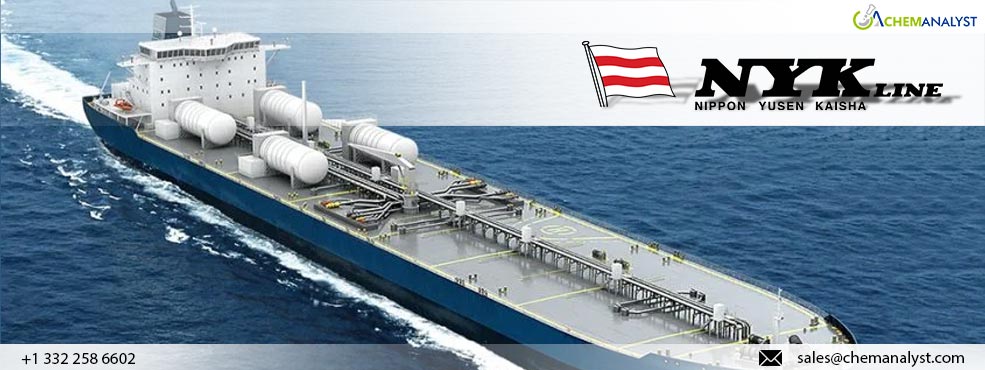Welcome To ChemAnalyst

Starting from May 2, Nippon Yusen Kabushiki Kaisha (NYK) initiated a long-term trial of biofuel* on its very large crude oil tanker (VLCC) Tenjun (hereafter referred to as "the vessel"). The vessel obtained its initial batch of biofuel in Singapore and is scheduled to rely on biofuel for about three months to conduct a thorough assessment of its safe and consistent procurement for extended utilization.
NYK has previously undertaken numerous safety trials, both short- and long-term, involving the utilization of biofuel on bulk carriers, car carriers, and liquefied petroleum gas (LPG) carriers. However, this marks the inaugural occasion where an NYK-operated VLCC participates in an extended biofuel trial.
Biofuels derive from organic sources, such as agricultural residues and waste cooking oil, and are deemed to generate nearly zero carbon dioxide (CO2) emissions upon combustion. Despite emitting CO2 during combustion, the plants absorb CO2 and regenerate biomass. Consequently, direct combustion emissions are virtually nil, positioning biofuels as a potential carbon-neutral substitute for fossil fuels. They are compatible with heavy-oil-powered ship engines prevalent in large merchant vessels, making them pivotal in curbing greenhouse gas (GHG) emissions during the transition from heavy oil to zero-emission fuels.
The vessel specifications are as follows: it spans 330.00 meters in length and measures 60.00 meters in width, with a gross tonnage of 159,927 tons and a deadweight tonnage of 302,108 tons. Constructed in 2008, the vessel was built by IHI Marine United Shipbuilding Corporation, situated in Kure City, Hiroshima Prefecture.
Biofuels undergo a refining process known as methyl esterification of vegetable oils, presenting a potential substitute for petroleum-derived heavy and light oils. Unlike fossil fuels, which form over extended periods, biofuel is rapidly generated from biomass. It can originate from various sources including plants, agricultural residues, domestic, or industrial biowaste.
Nippon Yusen Kabushiki Kaisha, better known as Nippon Yusen Kaisha or NYK Line, has a rich history dating back to its establishment on September 29, 1885. With its head office located at 3-2, MARUNOUCHI 2 CHOME, CHIYODA-KU, TOKYO 100-0005 JAPAN, the company has established branch offices across key regions in Japan, including Hokkaido, Akita, Yokohama, Nagoya, Kansai, and Kyushu. This extensive network underscores NYK's commitment to providing comprehensive maritime services and solutions nationwide. Since its inception, NYK has played a pivotal role in shaping Japan's shipping industry and continues to be a leading force in the global maritime sector. As of March 31, 2024, the company employs a total of 35,243 individuals.
We use cookies to deliver the best possible experience on our website. To learn more, visit our Privacy Policy. By continuing to use this site or by closing this box, you consent to our use of cookies. More info.
